Brompton Cemetery, in the Royal Borough of Kensington and Chelsea, London is the only London cemetery to be owned by the Crown managed by The Royal Parks.
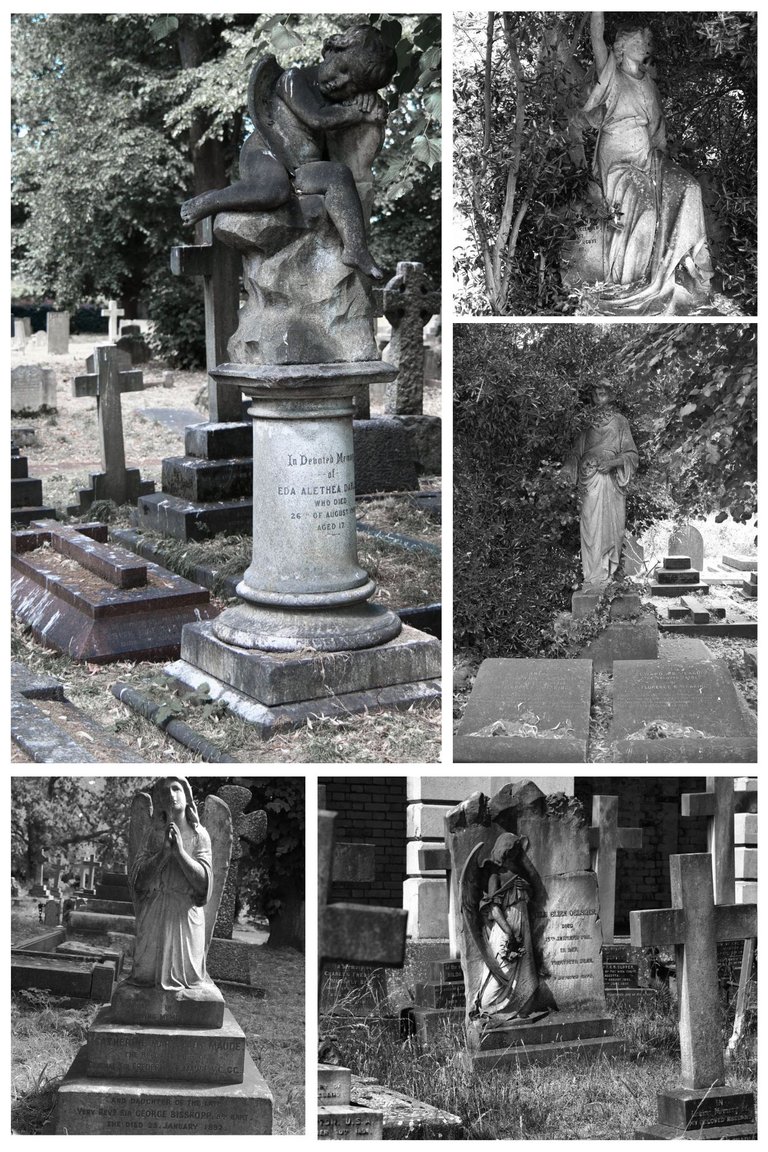
It is one of the "Magnificent Seven cemeteries" of London. Established and laid out in 1839, Consecrated by the Bishop of London, in June 1840, it remains one of Britain's oldest and most distinguished garden cemeteries. It is a Grade 1 listed park and a number of the monuments are individually as listed monuments in their own right.
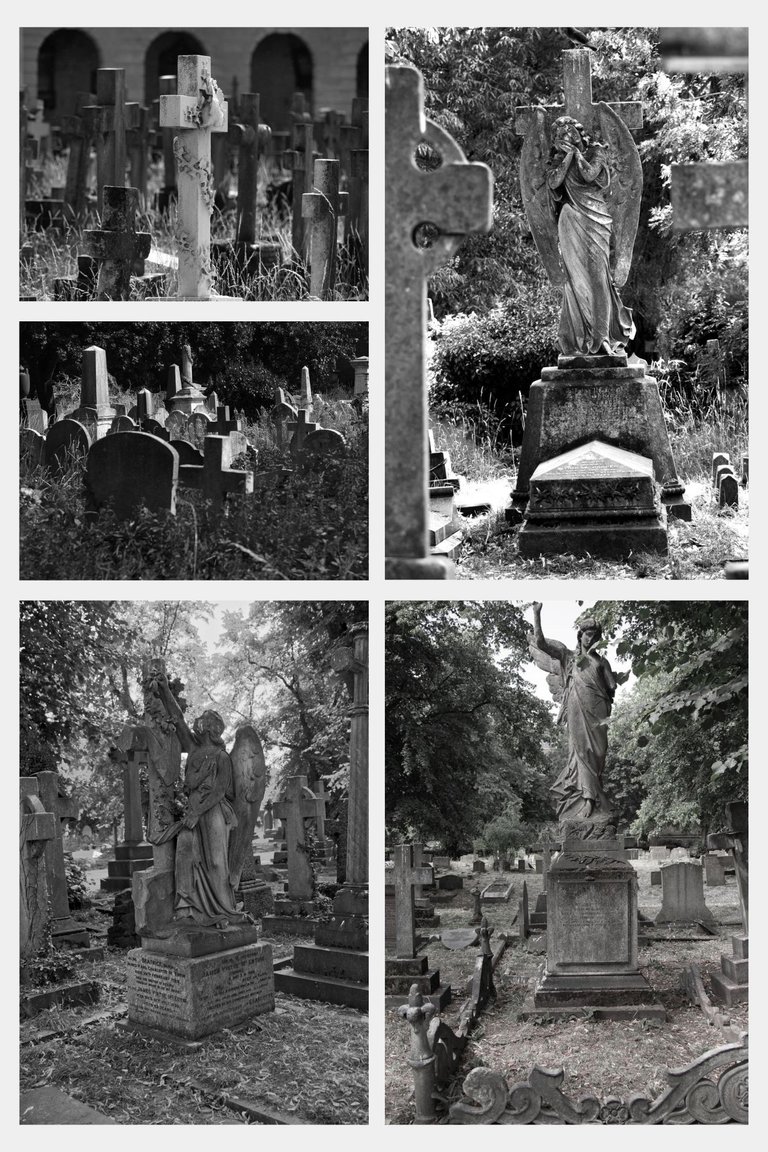
There are at present over 200,000 corpses here, some marked with simple headstones others with elaborate, pretentious, yet architecturally stunning monuments and mausoleums.
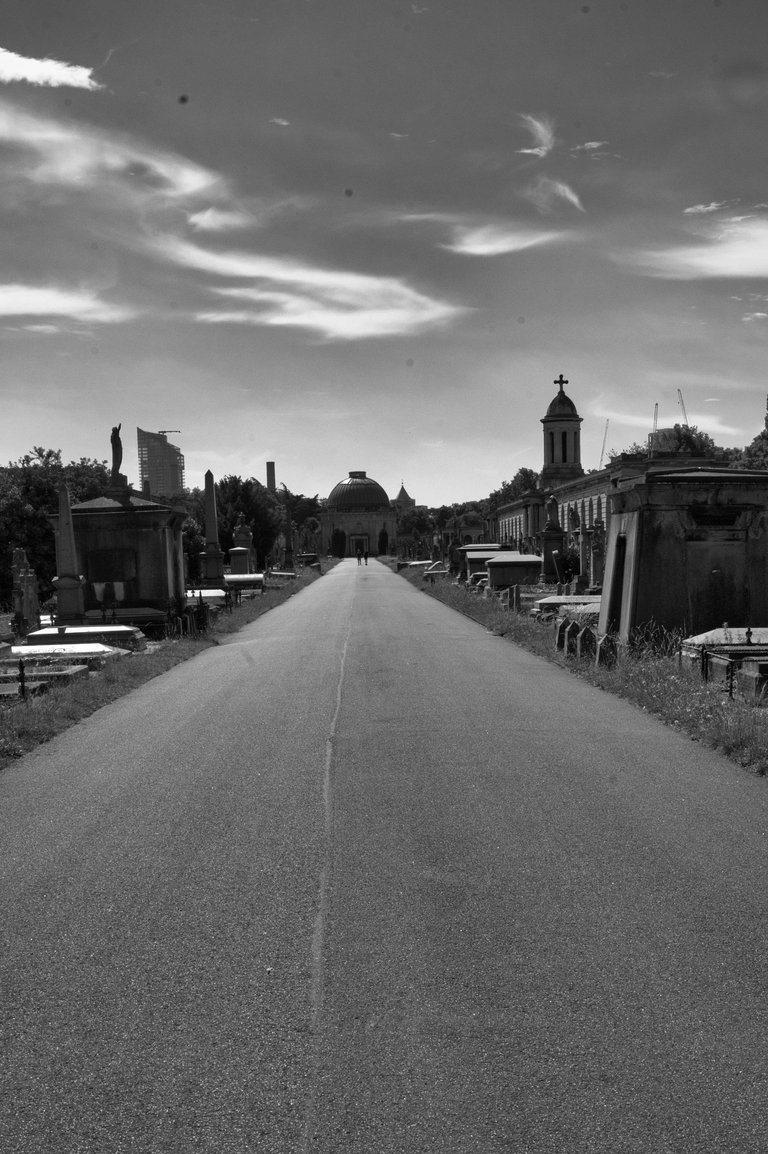
Let's walk down the Central Avenue and look at long dead people. Where possible a story of a life lived.
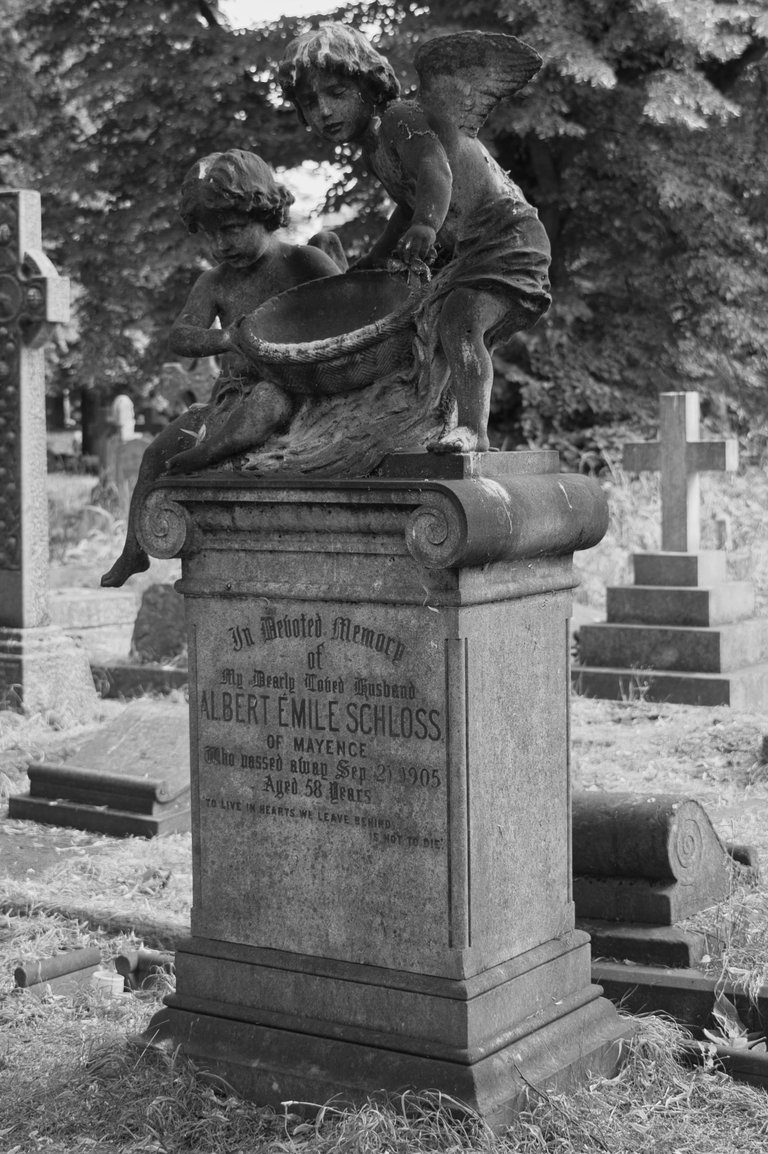
An elaborate memorial, expensive at the time the only thing known is that Herr Schloss who hailed from Mainz on the Rhine died at The Hyde Park Hotel, one frequented by aristocrats and royalty.
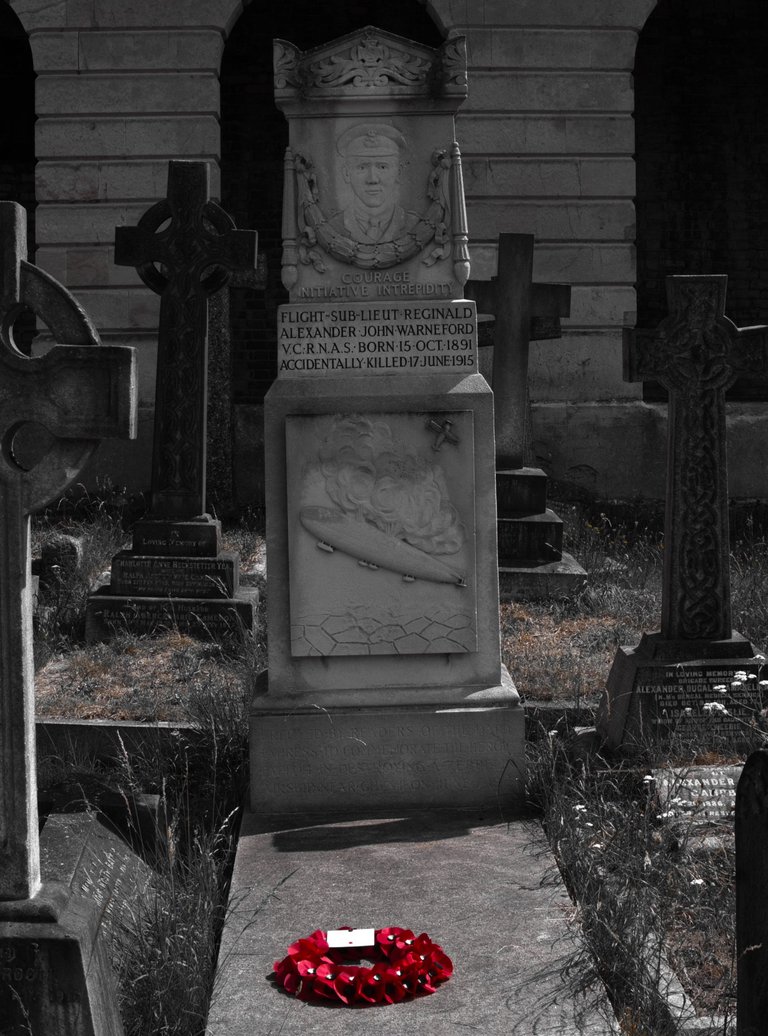
Reginald Alexander John Warneford, VC. a Royal Naval Air Service officer who received the Victoria Cross for air-bombing a Zeppelin during the First World War. It was the first victory of a heavier-than-air aircraft over a lighter-than-air dirigible. His death was not heroic but accidental whilst undertaking a test flight of a plane, at 200ft the airframe failed and came crashing down.
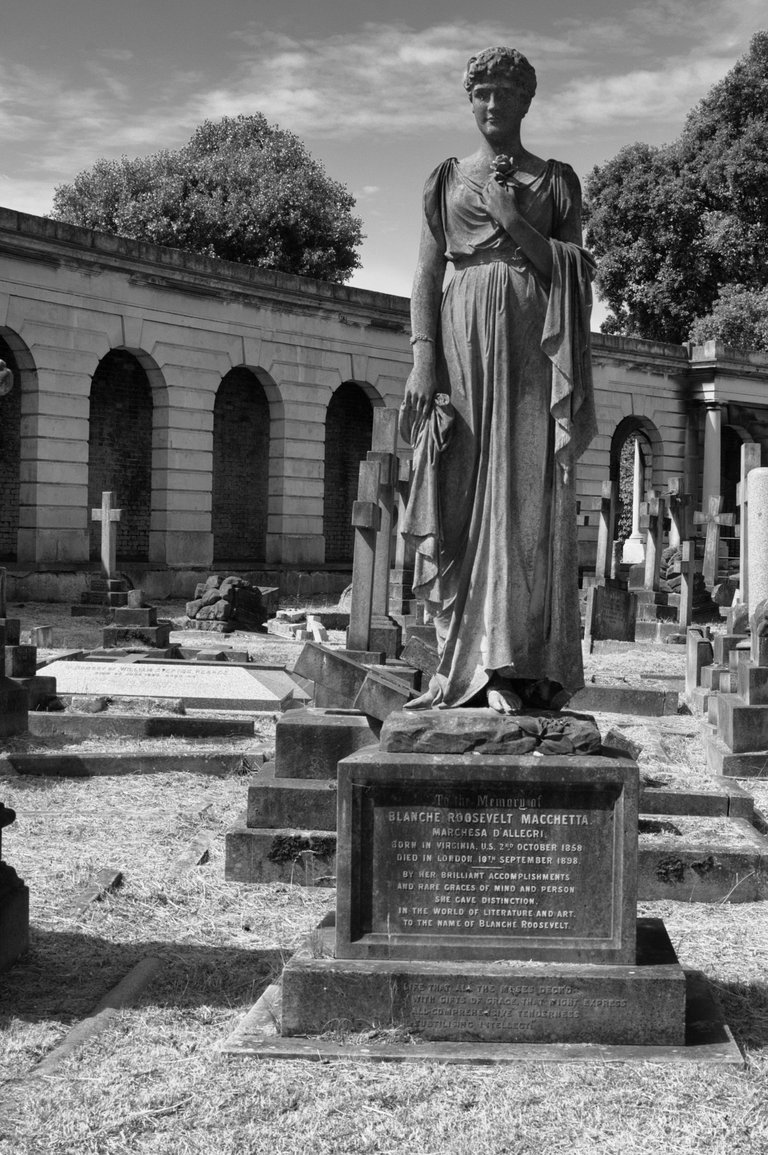
An opera soprano, writer, and Journalist. Who starred in "the Pirates of Penzance" when it premiered on Broadway in December 1879. Blanche Roosevelt Macchetta. Giving up her singing career when she maried into Italian aristocracy. She then wrote several successful novels. in 1897, she sustained serious injuries from a carriage accident and never recovered, she died in London at the age of 45.
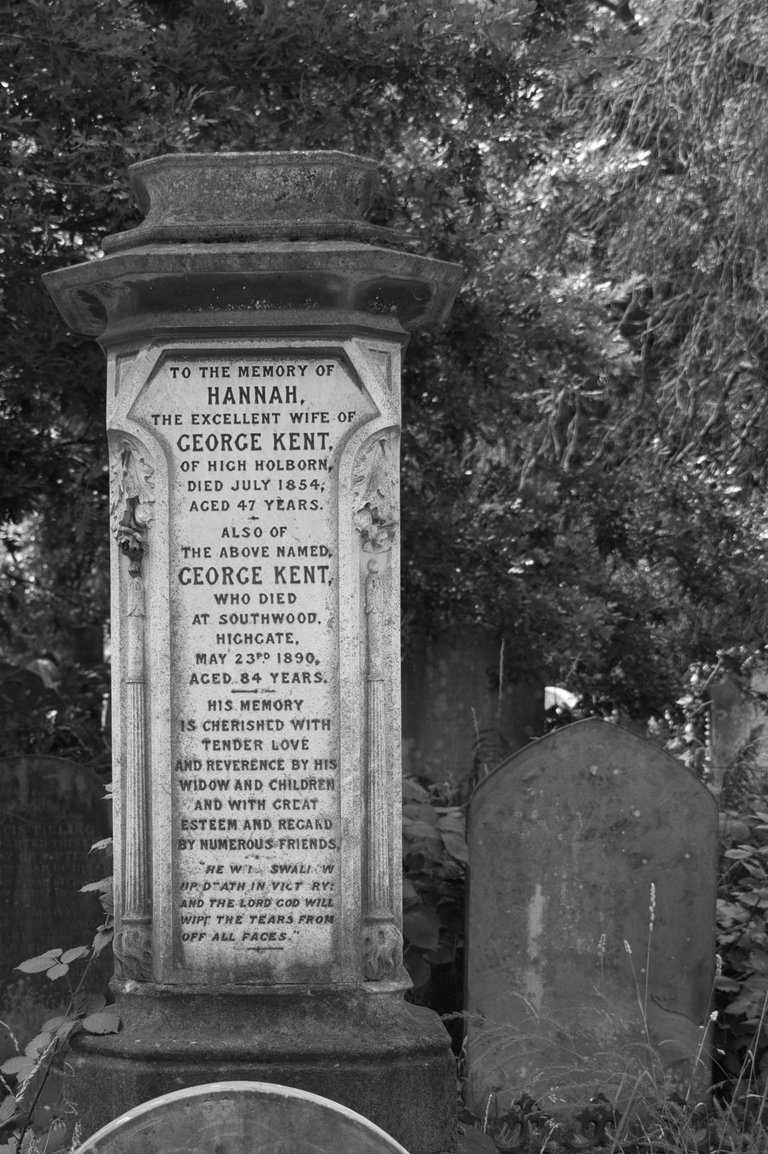
How quaint, that Hannah was "an excellent wife"
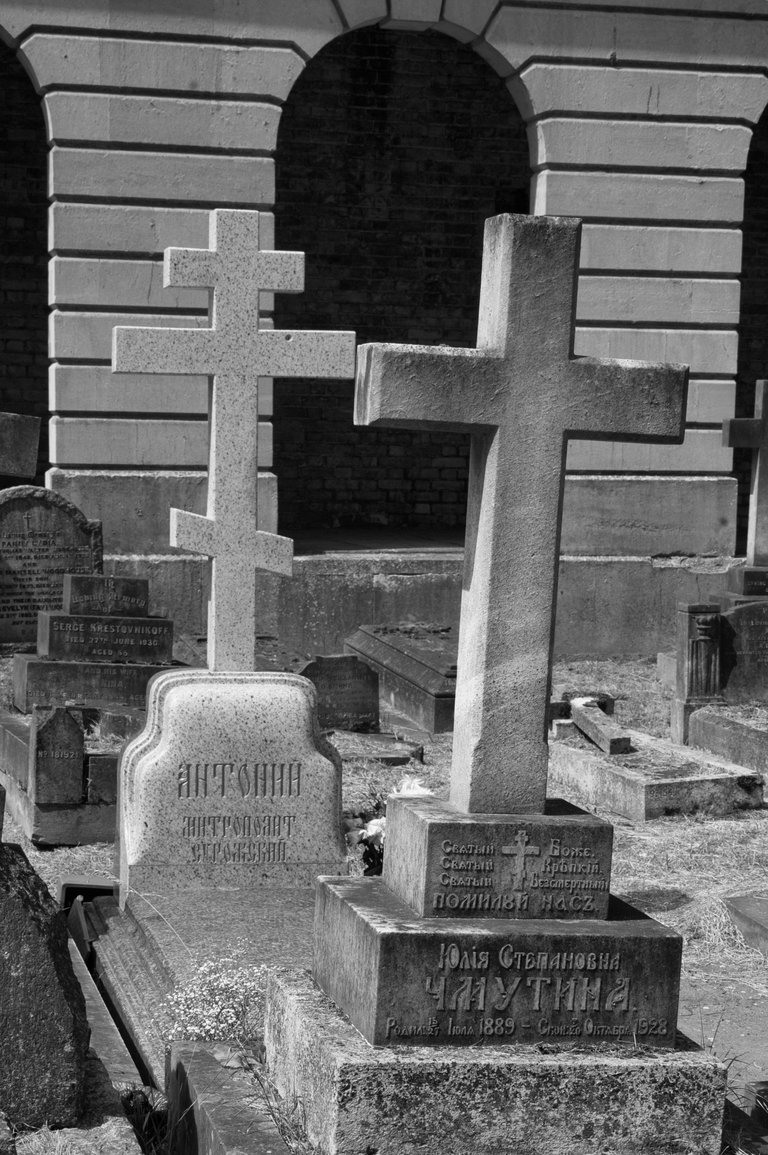
To the front, Yulia Stepanovna Chmutina, famous as a dramatic actress in pre-revolutionary Russia. Her husband, Arkadiy Chmutin, made a living in London by running a firm of bedding supplies from a shop on Chancery Lane After her death he and their daughters moved to China.
To the rear, André Borisovich Bloom, Metropolitan Anthony of Sourozh and head of the Russian Orthodox Patriarchal Church in Great Britain and Ireland, apparently his grave is one of the most visited in the cemetery.
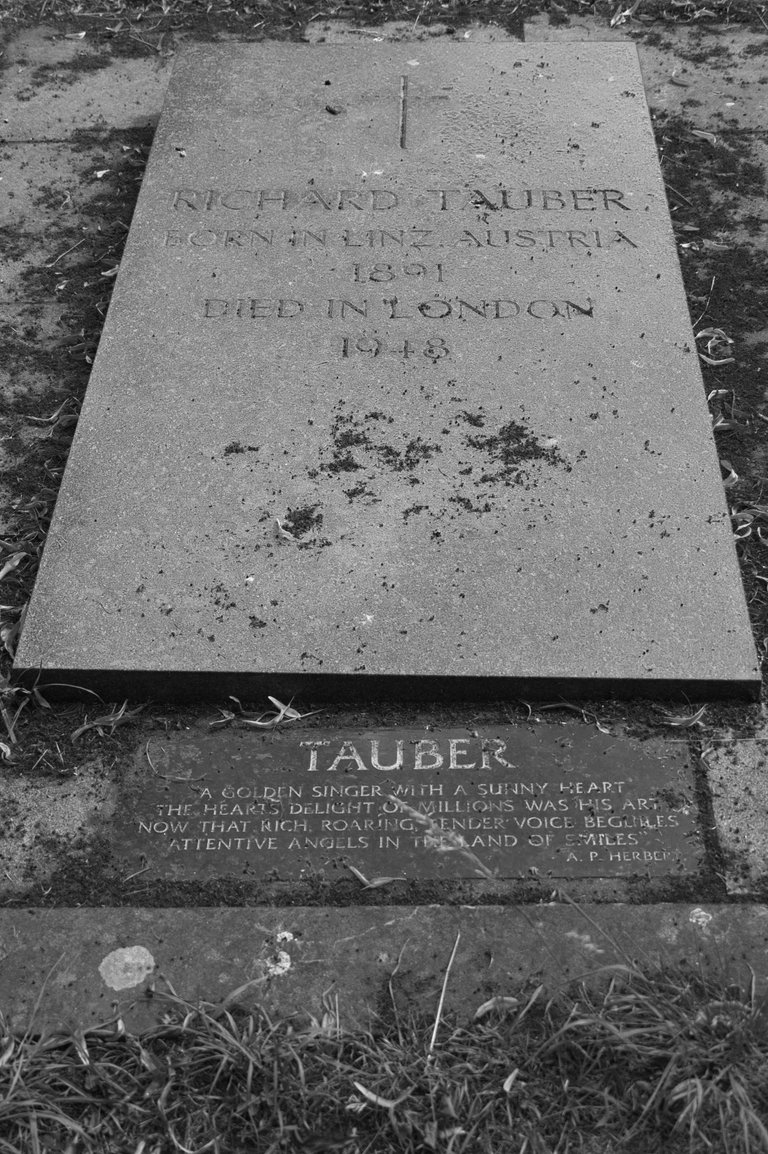
Richard Tauber, a renowned Austrian-born tenor and film actor, respected for his interpretations of operatic roles.
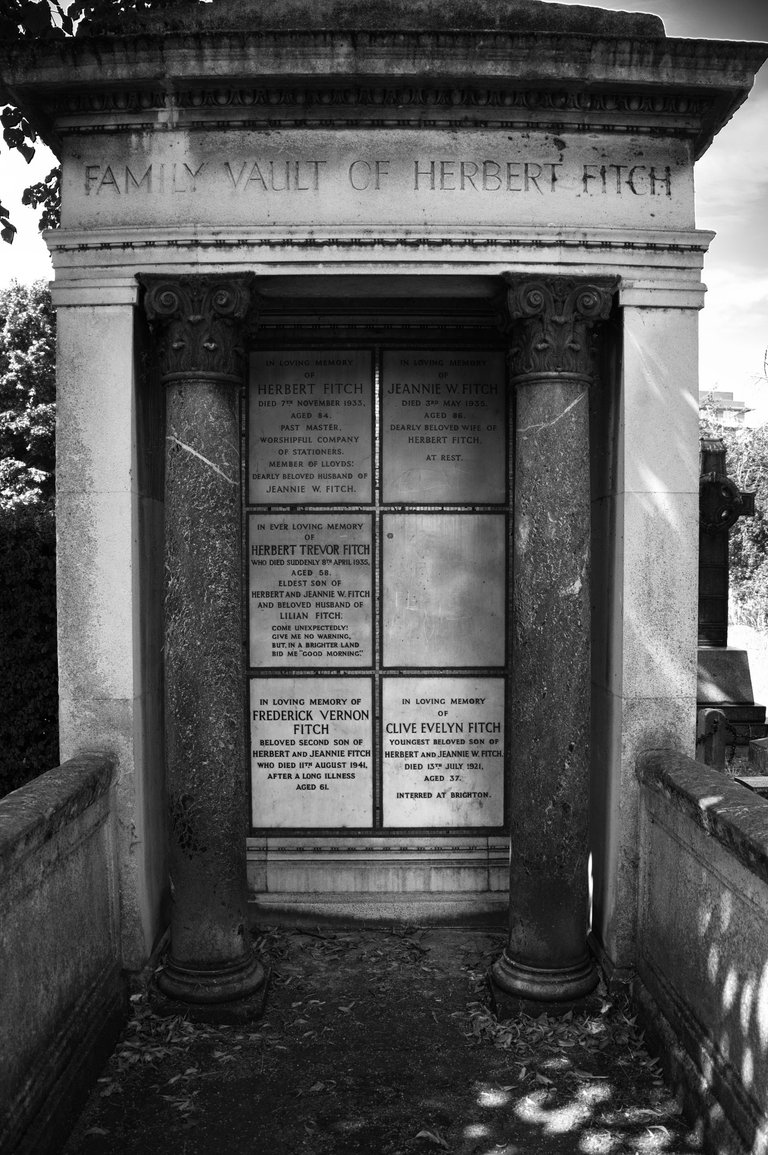
One of the more ostentatious monuments on the Central Avenue, the Fitch family vault. The patriarch Herbert Fitch established a successful printing business in the City of London. He also held the ceremonial title of Master of the Worshipful Company of Stationers.
It also holds his wife and three sons, one of whom Herbert junior, was a member of the Special Branch, which was and is responsible for matters of national security and intelligence.
Apparently he hid himself in a cupboard in a pub so as to listen in on a secret meeting between Lenin and his comrades.
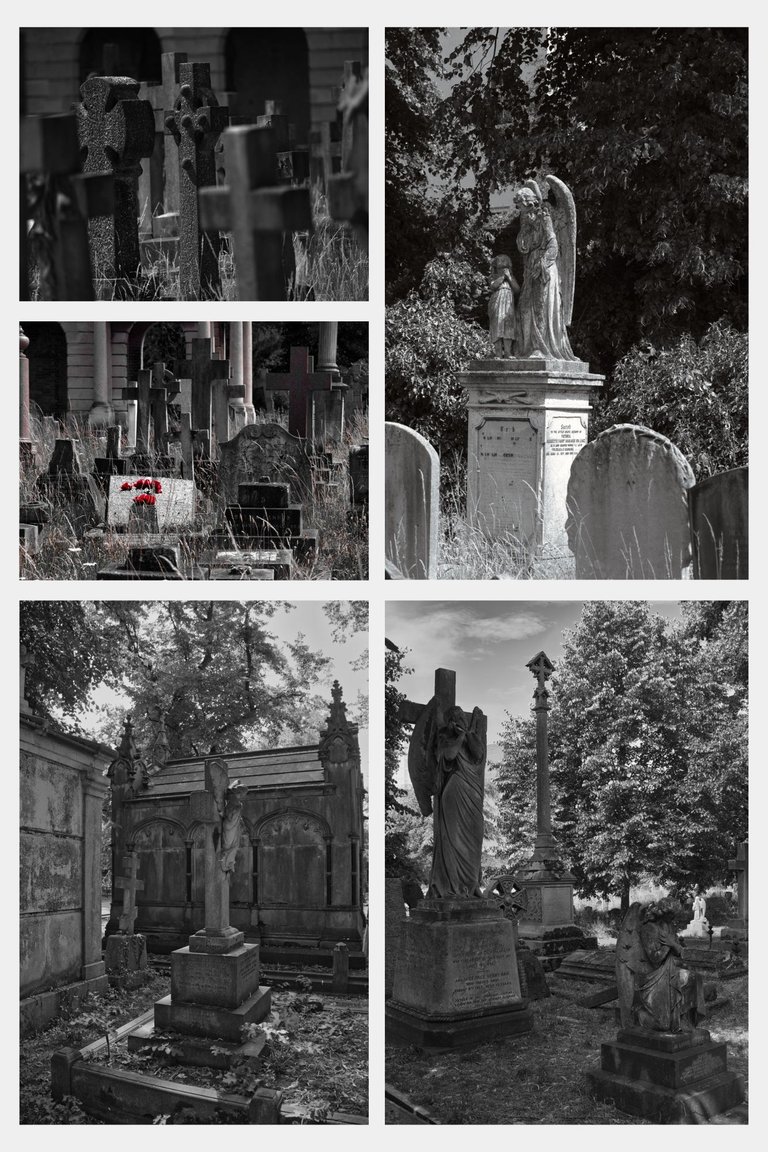
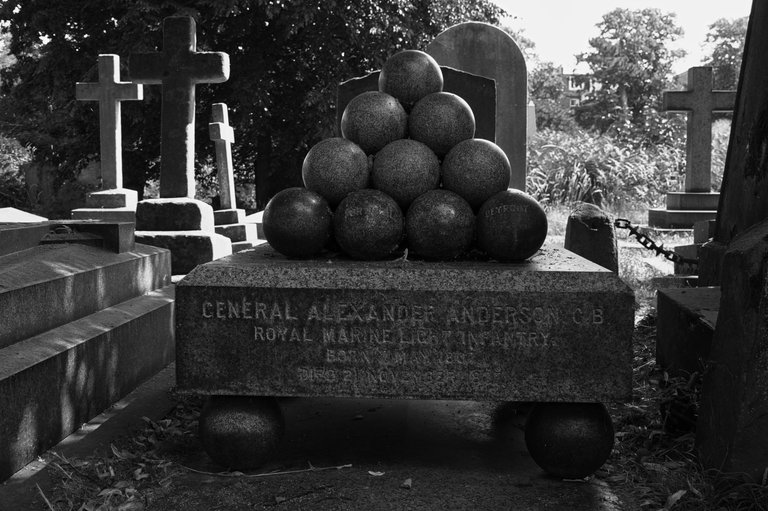
General Alexander Anderson was an officer in the Royal Marine Light Infantry. An unusual load of stacked cannonballs
Three of the cannonballs are inscribed with the names of battles he must have fought in: 'Beirut', 'Gaza', and 'Syria, nothing changes; all still familiar.
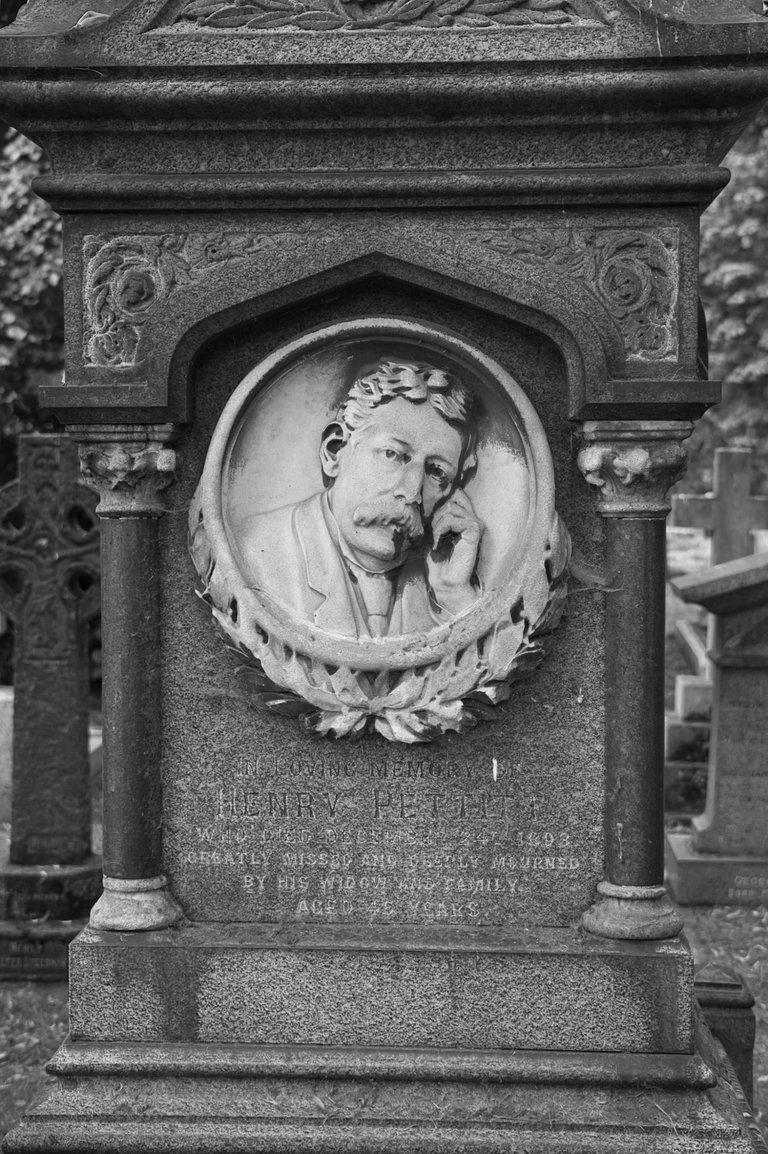
Henry Pettitt: was a prominent Victorian-era British dramatist, actor, and author. He died at the age of 45 from typhoid.
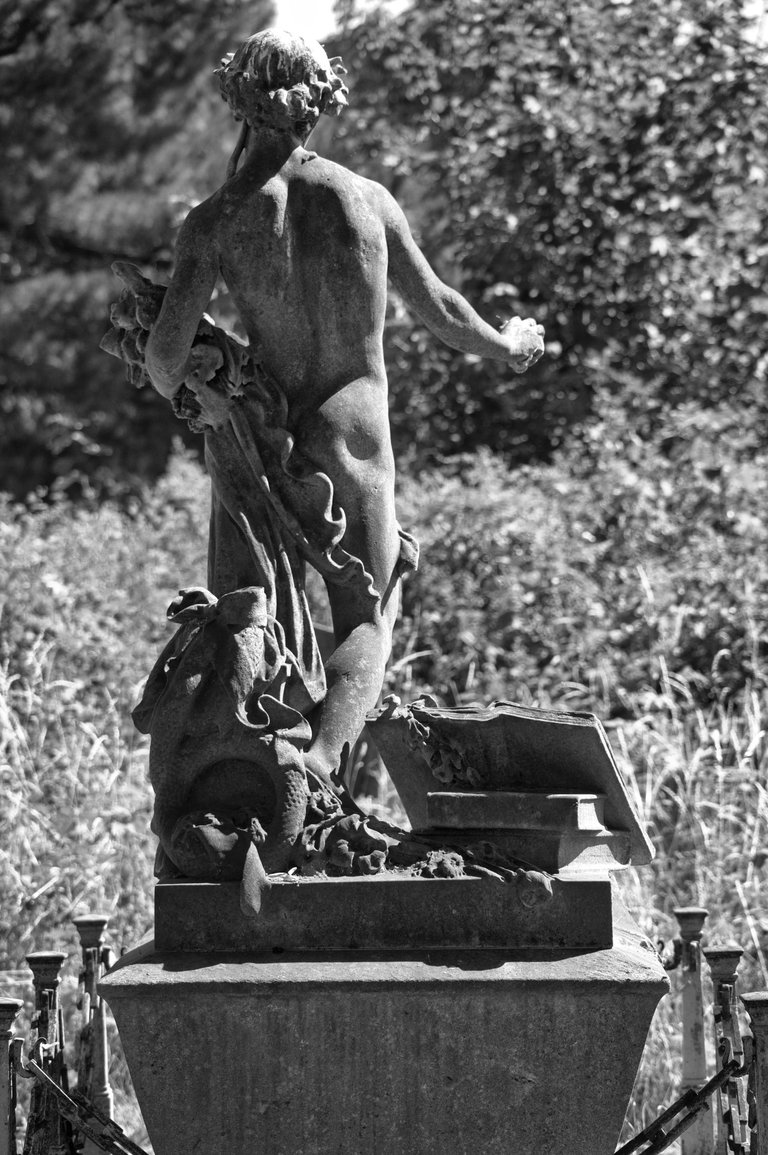
Barbe Maria Theresa Sangiorgi guarded for all eternal blackness by a naked boy endlessly throwing flowers over her grave.
Born in Belgium, married a German chef. They moved to London in 1867 and opened a small restaurant in Soho. When her husband died ten years later, Barbe married a young Italian the restaurant became very successful. And it’s still going today.
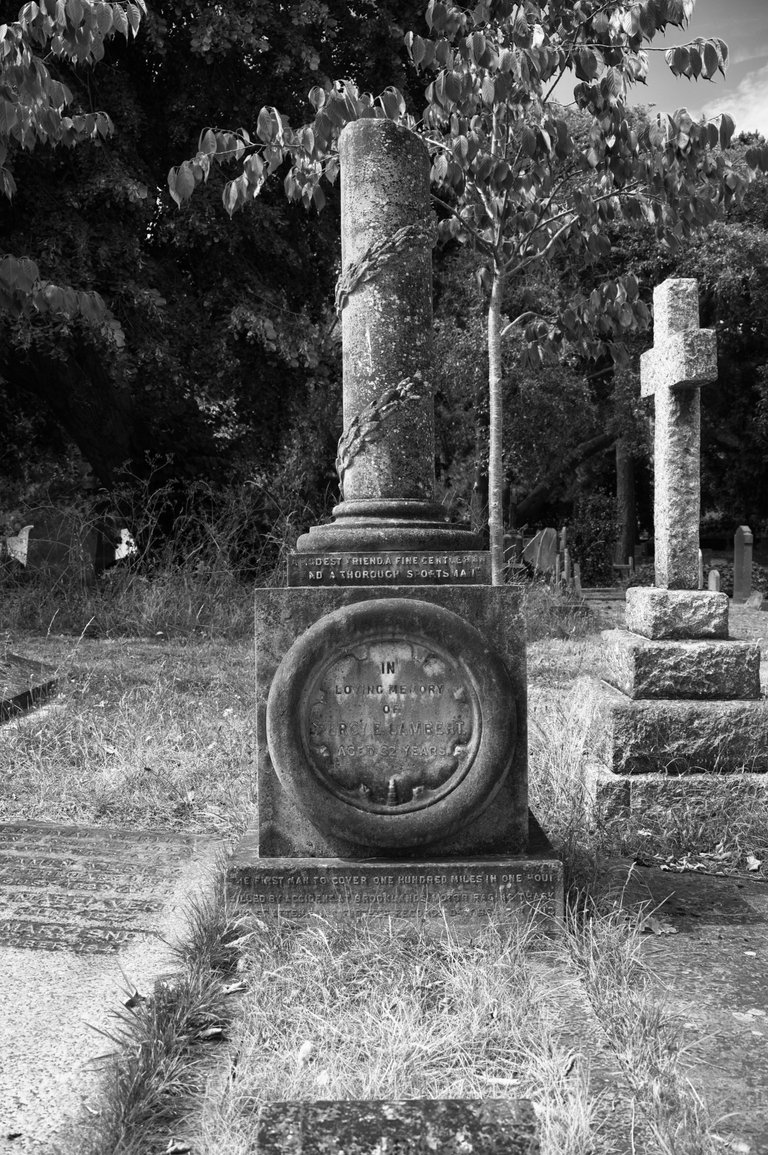
Percy Lambert was the first person to drive a car at 100 mph achieving this feat at Brooklands, a former British motor racing circuit in February 1913.
In October the same year while attempting to break his own record at Brooklands, a rear tire burst and his car overturned. Percy died in the crash
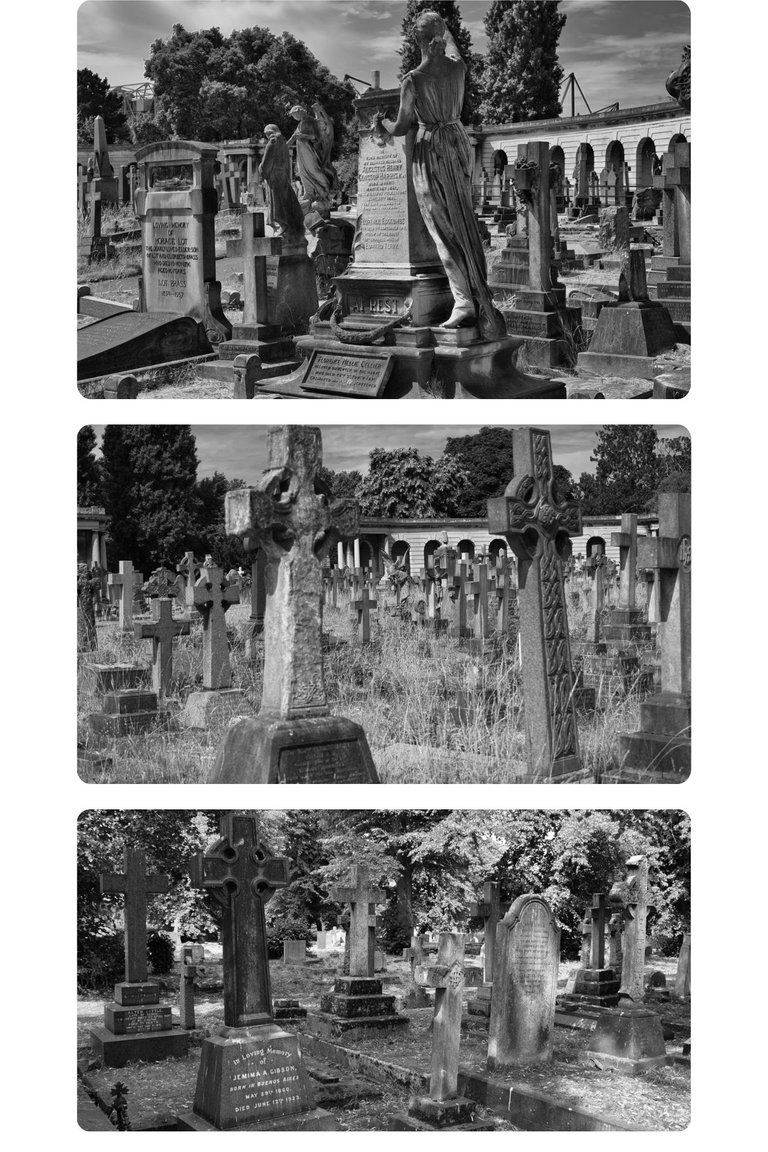
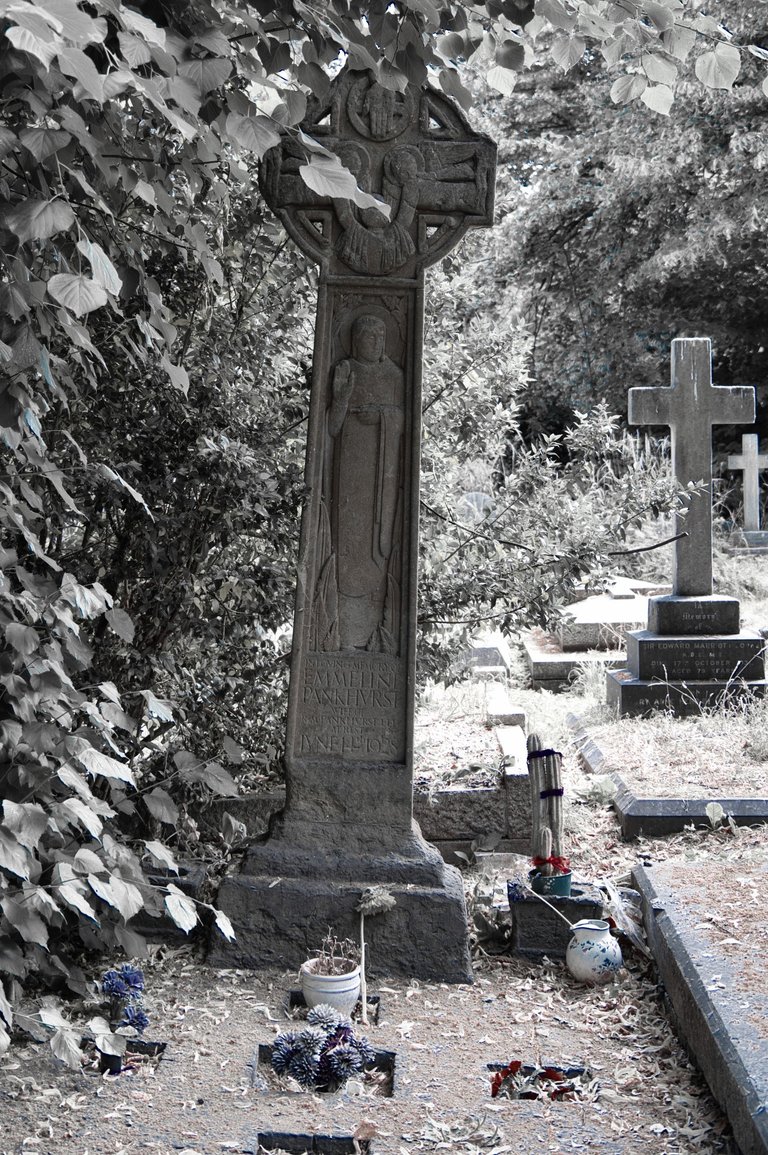
A rather understated memorial, Emmeline Pankhurst the original Bra burner, well known in Britain as the head of the suffragette movement, campaigning for women's right to vote.
She died in 1928, the same year an Act of Parliament granted equal voting rights to women over 21. Her grave is a listed monument
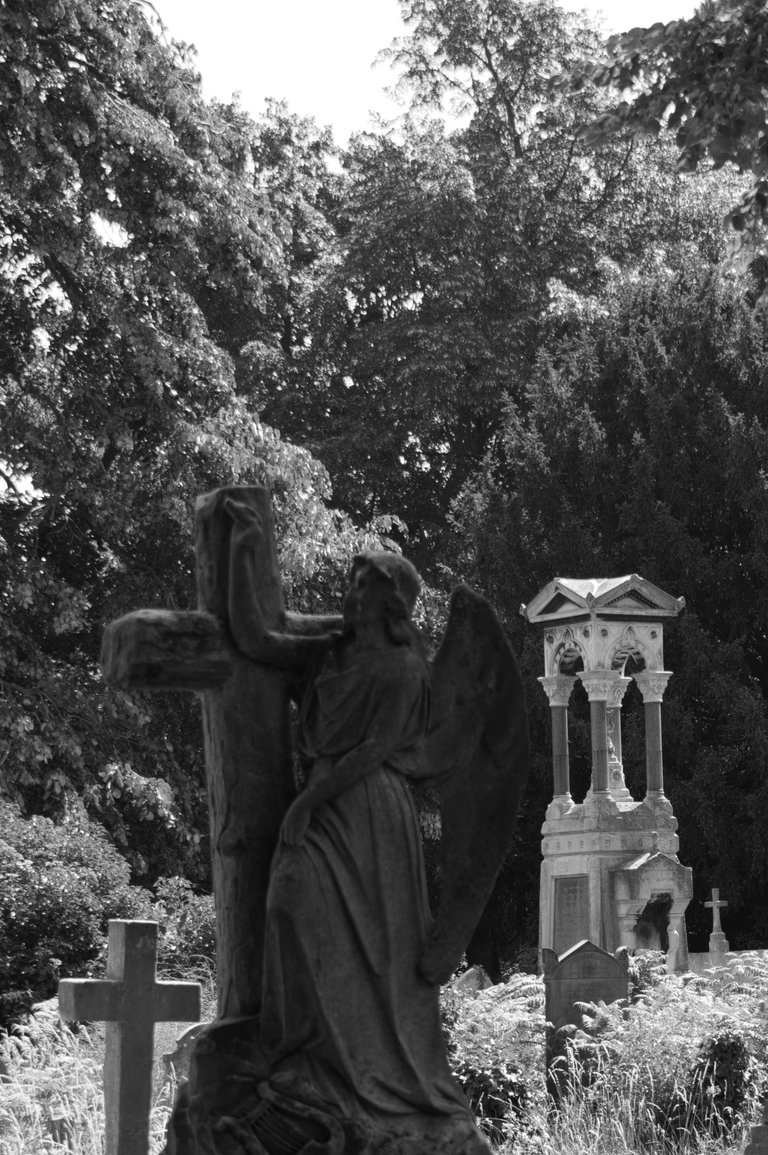
Alfred Mellon has a very tall monument indeed, an accomplished violinist who became leader of the Covent Garden Ballet Orchestra and finally conductor of the Liverpool Philharmonic Orchestra
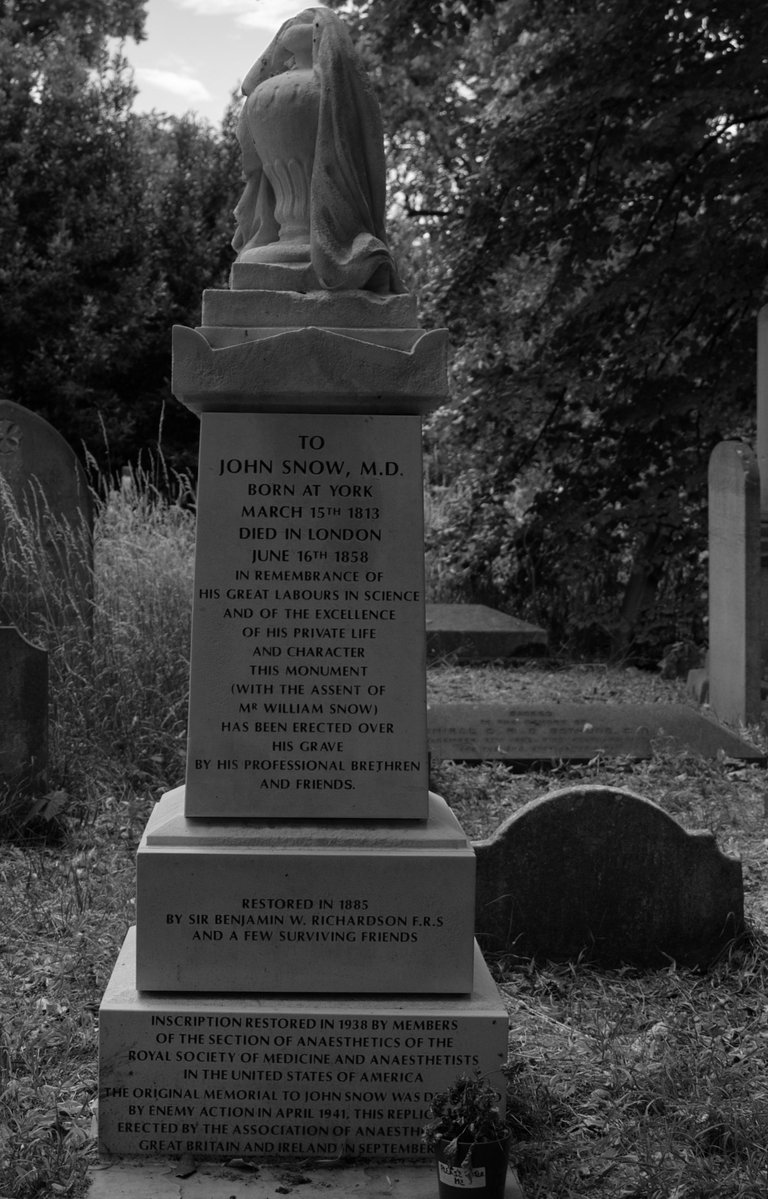
Dr. John Snow has been voted the greatest physician of all time by British doctors and quite rightly so. During the mid 19th century Cholera outbreak in London, it was his pioneering work that proved that the cause was through drinking infected water. He also pioneered the safe use of ether and chloroform as anaesthetics.
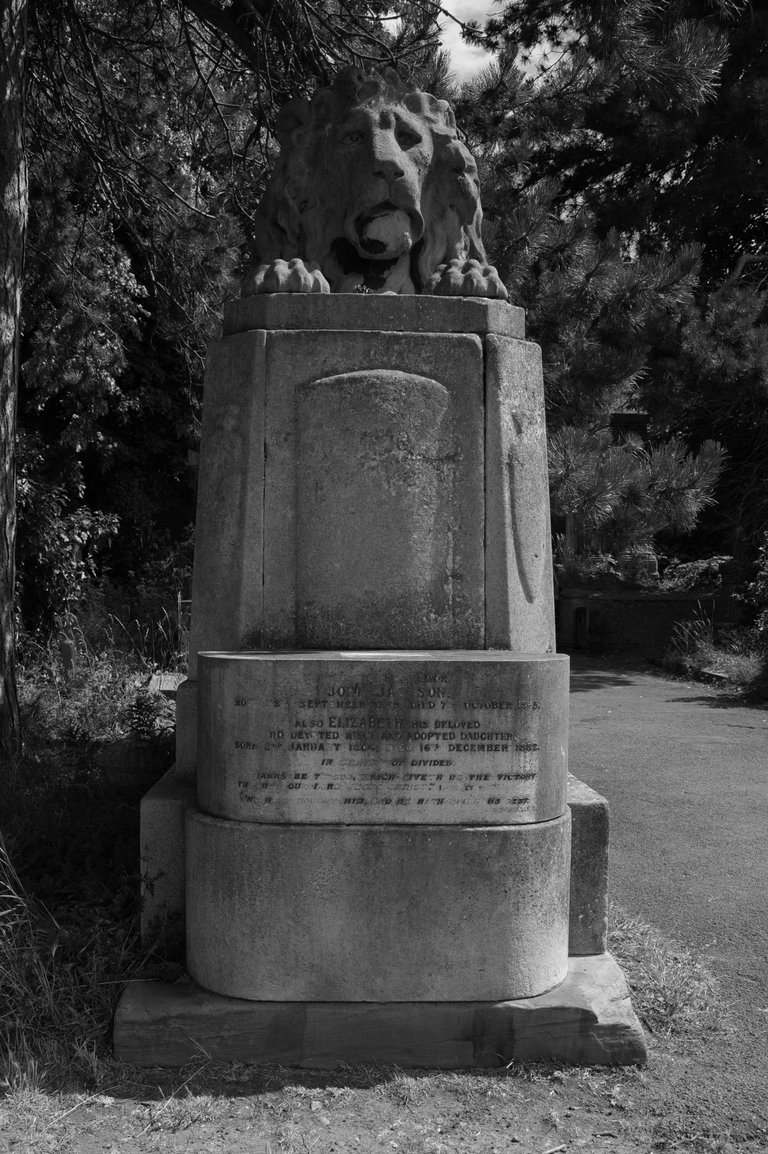
John "Gentleman" Jackson, was a damned good bare-knuckle fighter in 1795 he was crowned as Champion of England.
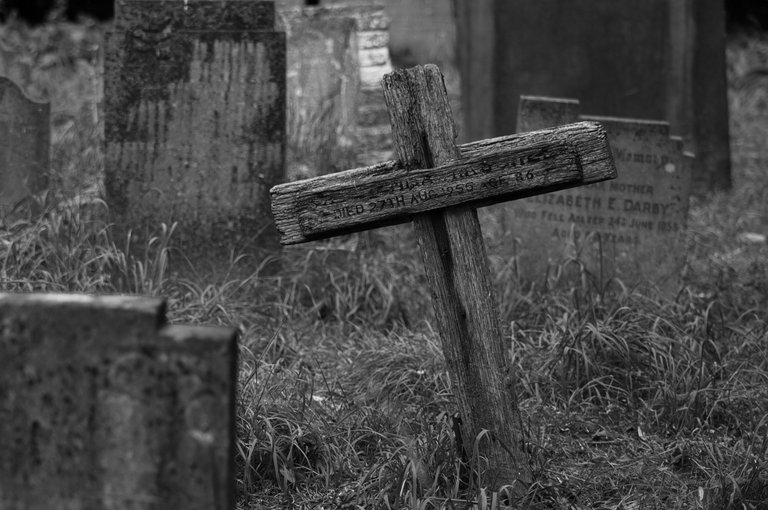
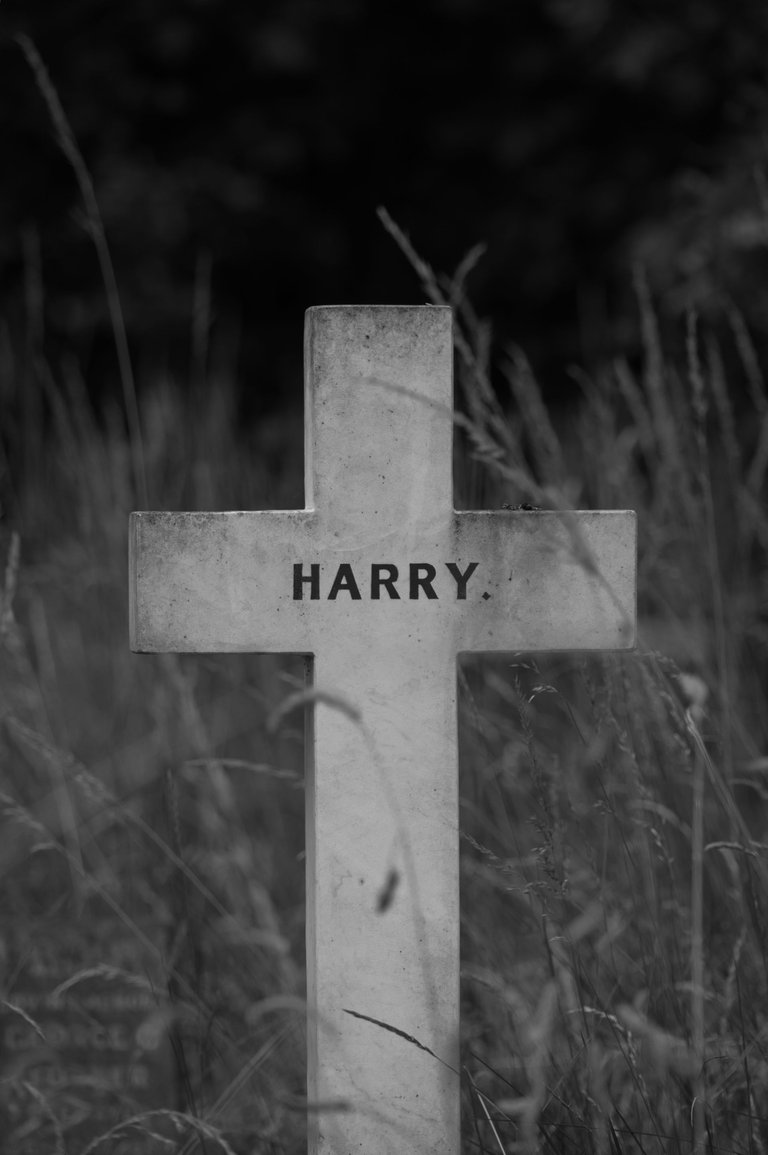
Not everyone needs or wants a fancy pants grave




[//]:# ([//]:# (!worldmappin 51.48399 lat -0.18974 long d3scr))




